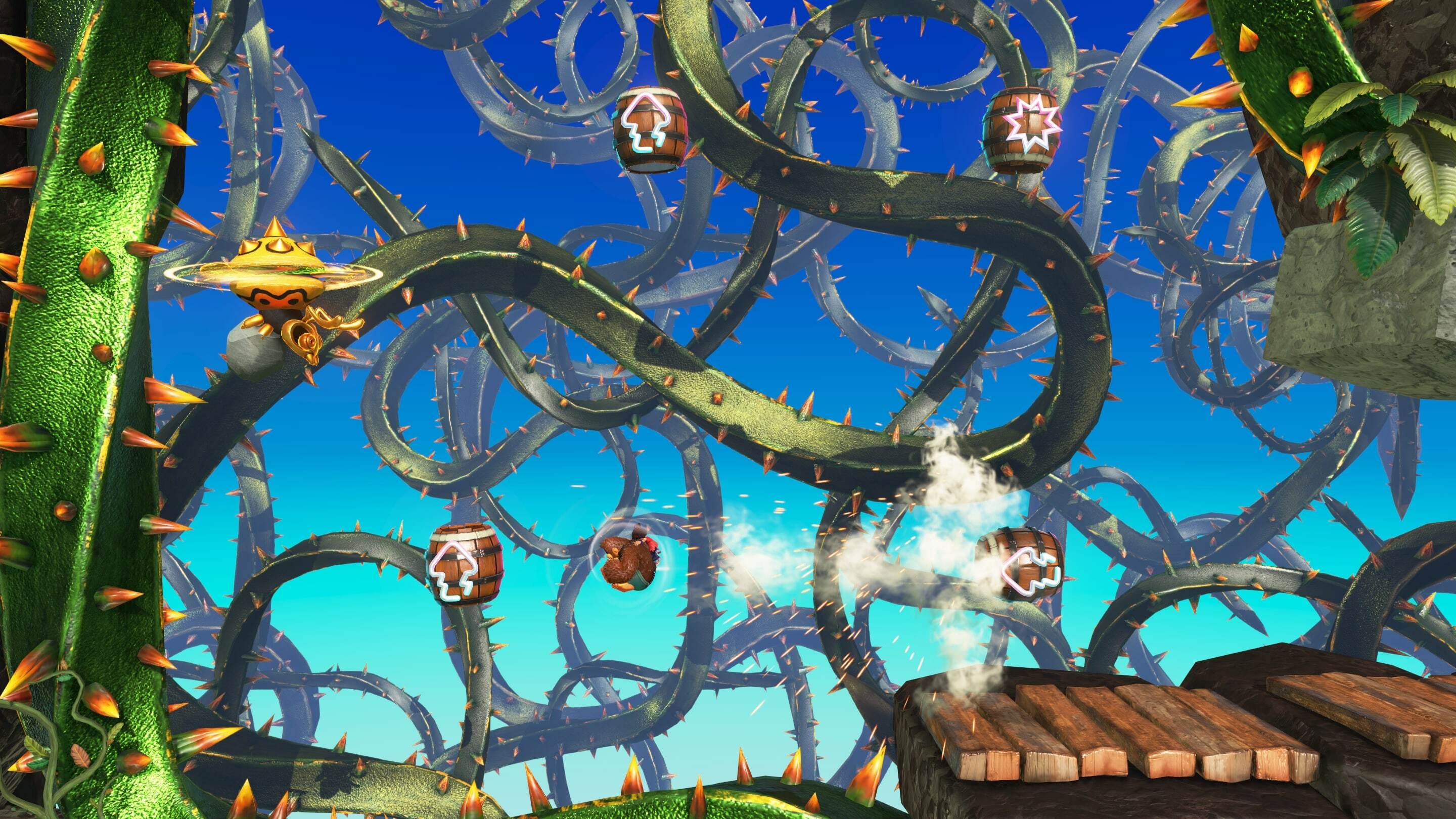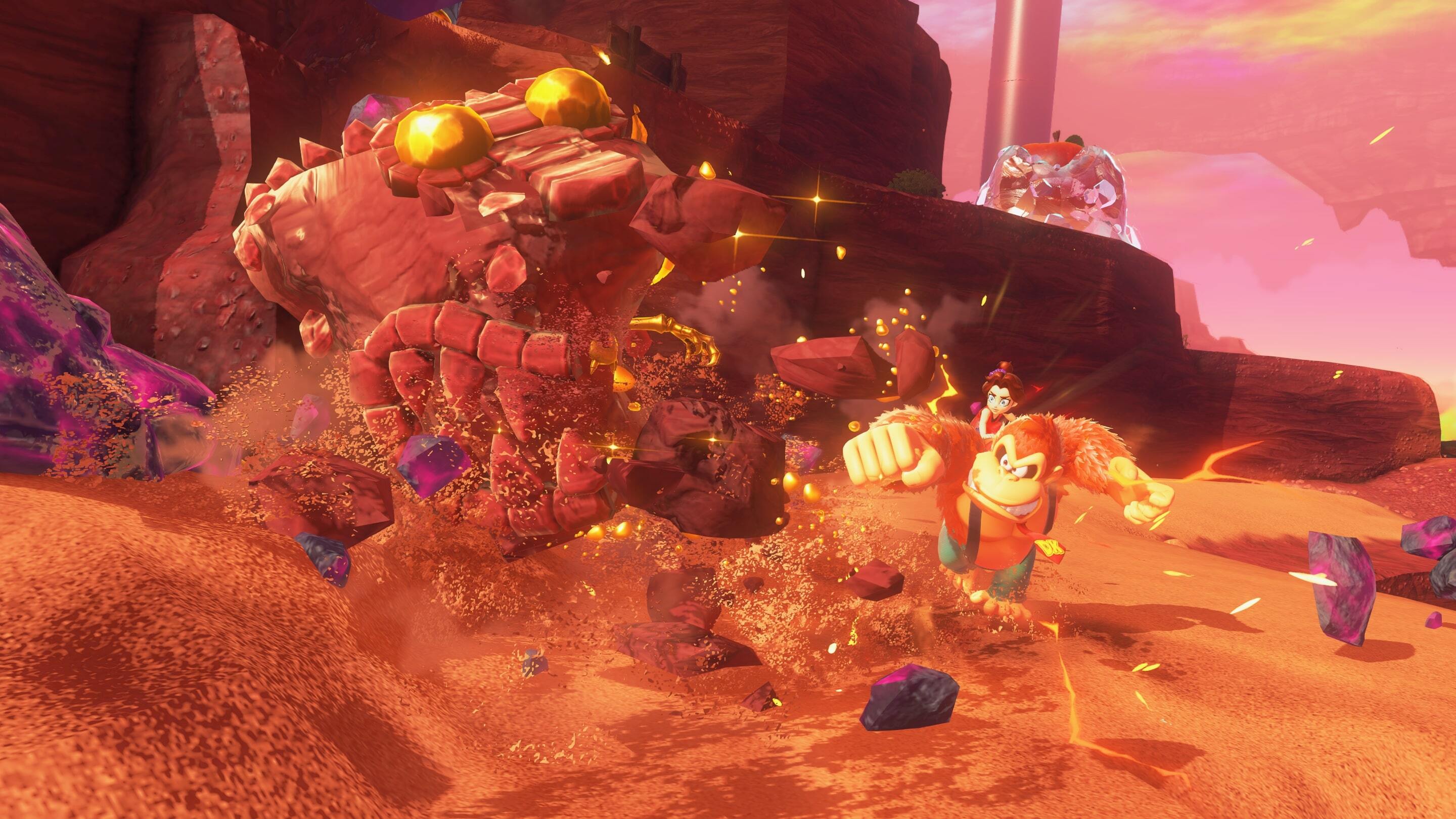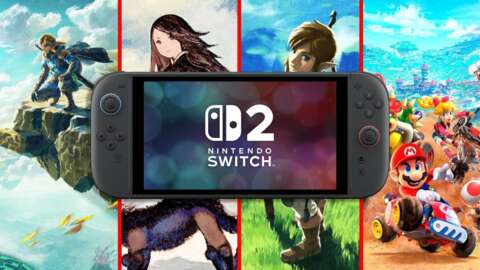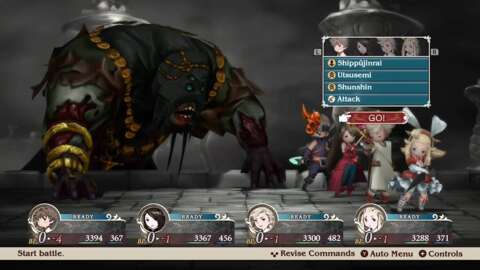Donkey Kong Bananza Isn't Too Easy, It's Just Well-Designed

It isn't that the game has little challenge--it just trains you well to succeed
2XKO - Blitzcrank Character Gameplay Reveal Trailer Final Fantasy Tactics - The Ivalice Chronicles Hands on Impressions Hell Is Us Review Phantom Blade 0 - 29 Minutes of Gameplay (Gamescom 2025 Demo) Phantom Blade 0 - Hard Mode, Combat, And More Explained Honkai: Nexus Anima - Nexus Bond Teaser Trailer | Side by Side Battlefield 6 - Official PC Features Overview Trailer Silent Hill f - 10 Minutes of NEW Gameplay Helldivers 2 - Dust Devils Warbond Gameplay Trailer Pokemon Legends: Z-A | Hawlucha vs. Machamp FULL MATCH | Cinematic Trailer Outer Worlds 2 Hands On Impressions SUPER ROBOT WARS Y - Launch Trailer
Want us to remember this setting for all your devices?
Sign up or Sign in now!
Please use a html5 video capable browser to watch videos. This video has an invalid file format. 00:00:00Please enter your date of birth to view this video
By clicking 'enter', you agree to GameSpot's
Terms of Use and
Privacy Policy
Now Playing: Donkey Kong Bananza GameSpot Review
Loosely characterizing Donkey Kong Bananza in this manner misses the point of what makes the game so enjoyable to play. Bananza is a breeze for players because it's built on a framework that is versatile and complex yet accessible and intuitive. By giving you all the tools you need to succeed in Bananza's vast sandbox, Nintendo made a game that feels effortless to punch your way through. If you think the game is easy, then it's doing its job correctly--Nintendo wants it to feel easy.
Assuming that Donkey Kong Bananza isn't your first-ever video game, you're probably already well-versed and literate in gaming. With Bananza, Nintendo created a gaming "language" that players could pick up with little trouble. As you progress through the game, you learn how to string together basic control functions to execute creative movements. It's not unlike how Mario could use Cappy for platforming in Super Mario Odyssey, but DK has a lot more in his toolset.

Donkey Kong Bananza is a game that requires creative solutions, and it prepares and trains the player well enough in this gameplay language so that these solutions come quickly. Often, Bananza has the answer to a problem right in front of the player, but the game doesn't give it away with a giant arrow (even though there are Fractones literally shaped like giant arrows that will direct you at critical story moments). Instead, the player must recall all of the challenges they've faced and the different contexts and cases in which they used the game's toolset to conjure up a solution.
Playing Bananza often reminded me of The Legend of Zelda: Breath of the Wild (and its sequel) in that problems can have multiple solutions, some that feel unintentional. The knowledge of the game's physics and how different materials interact with each other is lodged in your brain, and both Bananza and Breath of the Wild give you space to play around and solve puzzles in the way you want to. The shrines in Zelda and challenge rooms in Bananza are the best examples of these, acting as quizzes on how much knowledge about the games' systems you have retained and how to use them in different scenarios.
The open-world Zelda games and Bananza offer so many abilities and moves that forging your own path toward a solution almost feels like cheating. Think of every time where it felt like Bananza wanted you to take a certain route for a Banandium Gem, only for you to smash your own shortcut to it; or times when you should have gone through a platforming section, only to bypass most of it by gliding as an ostrich.
That doesn't mean the game is broken--you're just smart enough to take that approach. And with the amount of testing that any video game goes through, Nintendo undoubtedly knew that you could do that, but Bananza is designed to make it feel like it was entirely your original idea.

All this said, arguing against the simple labeling of "too easy" isn't to excuse Donkey Kong Bananza for any flaws or to shield it from all criticism. The boss fights are unmemorable encounters that negatively impact the game's pacing, and the abundance of gold essentially breaks the game's economy. There are imbalances in Bananza that warrant discussion. But condemning the game as "too easy" distracts us from the triumph and empowerment that we should feel as players.
It's probably silly to compare Donkey Kong Bananza to Dark Souls or Elden Ring, games that some players might find to be "too hard." The Souls games from From Software and Hidetaka Miyazaki wear their difficulty on their sleeve. Even still, Nintendo and From Software have the same goal with their respective titles: making the player feel powerful.
Describing Demon's Souls back in 2009, Miyazaki told Game Informer that making the game "difficult" was never the goal of the developers; instead, From Software wanted players to feel an "intense sense of accomplishment through forming strategies, overcoming obstacles, and discovering new things." The Souls games approach this very differently from Nintendo titles--Souls games are famously unforgiving--but what they have in common is that they both provide players with tools to feel that sense of accomplishment.

While something like Dark Souls might obviously be less approachable and more complex than Donkey Kong Bananza, it is still very much a game designed to be completed. Video games should make you feel successful, powerful, and smart, and the way Nintendo designed Bananza does just that.
Plus, like most modern Nintendo platformers, anyone seeking a higher level of challenge in Bananza can look forward to the post-game content. If you haven't played any of the Bananza Rehearsal levels, be warned that they can be infuriating. If you feel that the base game is missing some tension, those levels might provide it--and accomplishing them feels pretty darn good, or at least relieving.
We'll probably never abandon the vocabulary of "easy" and "hard" to describe games. Those words are, well, too easy to use in discussions. Still, with everything these games accomplish in empowering players, we should be able to critically discuss what makes a game feel easy or hard, rather than dismissing the entire experience with a single adjective.
I understand why someone playing Donkey Kong Bananza might call it too easy--but not only should we give developers the credit for crafting an approachable experience, we should acknowledge that we're pretty good at playing video games.
16 Best Nintendo Switch 2 Games To Play Right Now






Got a news tip or want to contact us directly? Email [email protected]
Donkey Kong Bananza Nintendo Switch 2This story originally appeared on: GameSpot - Author:UK GAG














